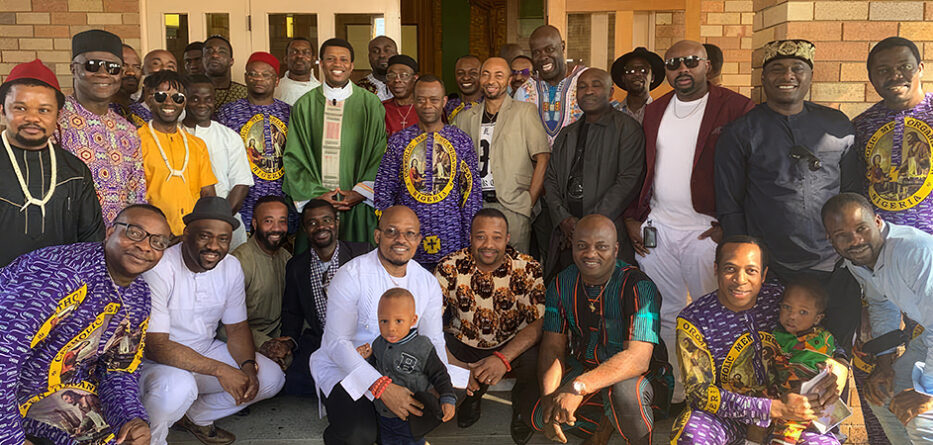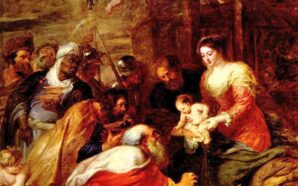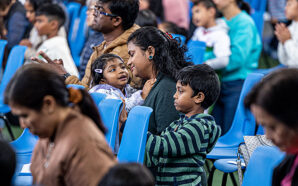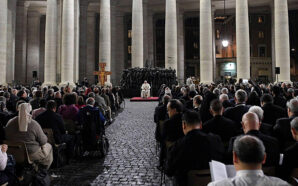Easter Vigil opens the Easter celebration for us, and for most Catholics. It begins with the service of light, the Exsultet, the numerous readings from old and new testaments, the great Alleluia, the Gloria with the ringing of the church bells again, the liturgy of the Eucharist, and the exclamations and exchanges of Paschal greetings, and gifts. All these are ways the Church announces that the tomb of Jesus is now empty, and that a new chapter has begun in the life of the Church.
Nigerian Catholic communities at home and abroad rejoice at the celebration of Easter because they believe that Christ’s victory over sin, death, and the powers of darkness, has given us new life and destroyed our old self.
Days before Easter, we go to the local markets to purchase food for the celebration. We buy new clothes for our children to be worn on Easter Day. Adults are also adorned in their best outfits for the Easter celebration.
The celebration on Easter Day traditionally begins with attending Mass. You’ll normally see families together going to church and sitting together in church, after which pleasantries and Easter wishes are exchanged.
During this period, we would normally visit extended families to celebrate the Risen Lord with them. In celebrating Easter with family and friends, we also would engage in multiple activities including a display of masquerades and feasting.
Easter season is also a wonderful opportunity for our people to gather and raise funds for certain community projects. It is also a good time for family meetings to solve problems, and to commemorate recent funerals.
Why these traditions are special
These traditions remind us that we are one people of the community and it’s a time that brings everyone home to commune as a people.
Families come together to profess their faith in the one God, and Risen Lord Jesus Christ. Families also through their celebrations acknowledge the redemption/salvation of humankind. Family reunions also give the opportunity to reconnect spiritually and socially. Such reunions strengthen family bonds, and it is often a way to mend broken relationships and restore peace.
Our Easter delicacies
Some of our special Easter food includes rice and stew, with assorted meats including beef, chicken, turkey and fish. There is also pounded yam or cassava, with melon soup, vegetable soup, and okra soup; pepper soup with goat meat or chicken meat; jollof rice with assorted meat; and plantain porridge with dry fish.
The most important part of Easter
Good Friday, an essential part of Easter, is a day of sober reflection and thanksgiving for the community as we join the global Catholic family in commemorating the passion, crucifixion, and death of our Lord Jesus Christ. We appreciate that on this sorrowful yet joyful day, we are reconciled to the love of God the Almighty Father.
The Exsultet is another important part of Easter when the light in the Church is extinguished and the Easter proclamation, which announces the victory of the Risen Lord, is sung. The people hold their lit candles, singing and dancing, especially when the traditional Igbo-Abu-Oma-Exsultet is used.
How we say: Happy Easter!
We would normally hug each other and recount “ha-a-appy-y-y Easte-e-er”. In our ‘WaZoBia’ languages of Nigeria we may say: “Baraka da Easter” in Hausa, or “Eku odun Ajinde” in Yoruba, and “Anuri Mbilite na-onwu Christi” in Igbo.
Dr Chuka Oham is the Chairman of the Chaplaincy Council and Stella Nwosu is the Liturgy Coordinator of the Diocese’s Nigerian Catholic Community.
This article was originally published in the 2024 Easter | Autumn edition of the Catholic Outlook Magazine. You can read the digital version here or pick up a copy in your local parish.









